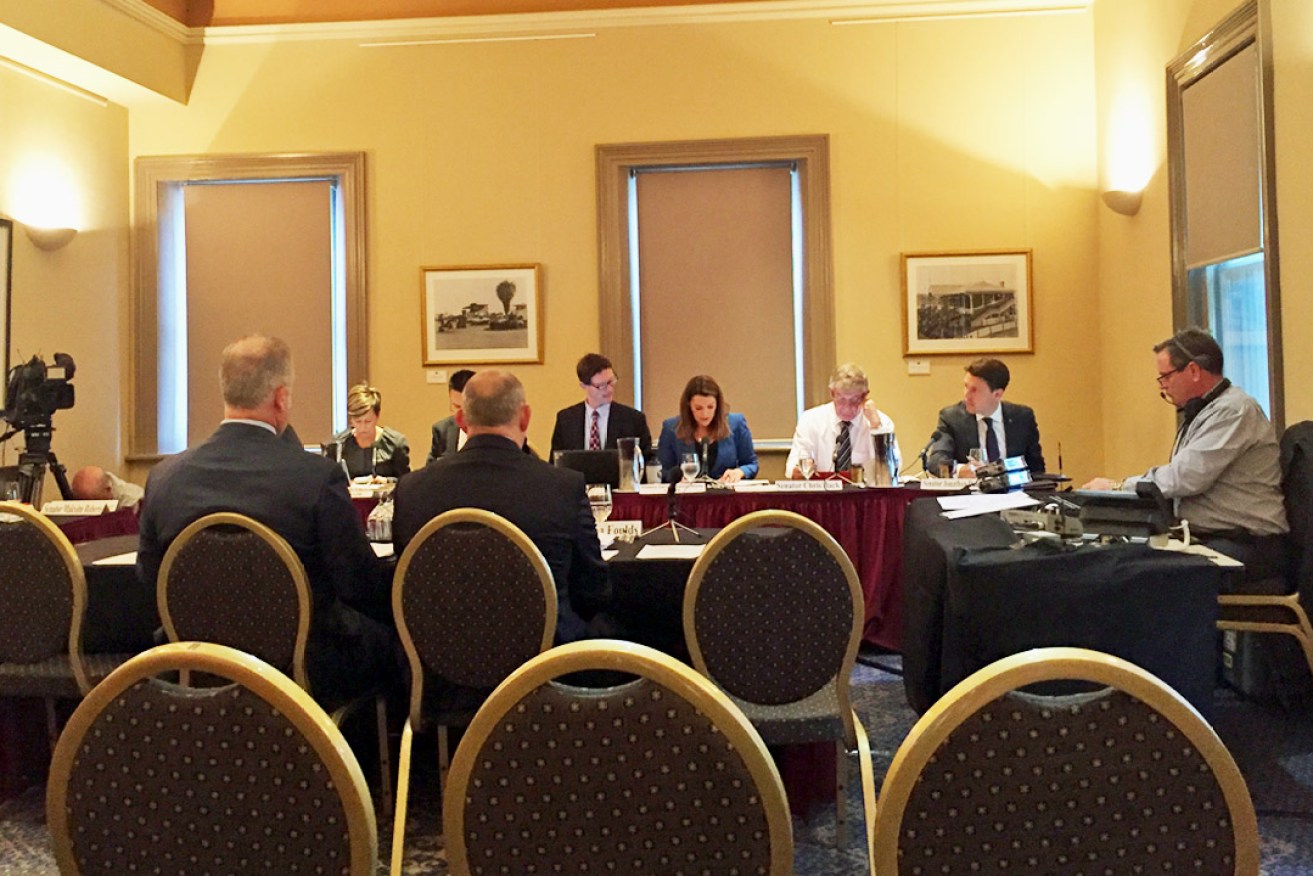Pelican Point operator denies “gaming” electricity market
The company running Pelican Point power station says the market operator must have known it would not bid into the market the day of this month’s blackout, and denied suggestions from Independent Senator Nick Xenophon that it declined to turn on extra generation in order to “game” the electricity market.


Engie head of corporate affairs Jim Kouts (front left) and head of trading and portfolio management Darren Foulds (front right) addressing the committee this morning. Photo: Bension Siebert/InDaily
Engie head of corporate affairs Jim Kouts told a Senate committee at Adelaide Town Hall this morning that the company’s second unit at Pelican Point had been mothballed since 2014 – and the Australian Energy Market Operator [AEMO] must have known Engie would not turn it on unless directed to do so.
A total of 90,000 consumers and businesses lost power on February 8 when AEMO decided to “load shed” some power to protect electricity infrastructure.
According to AEMO’s report into the incident, earlier that day AEMO asked Engie whether the second Pelican Point unit was available to generate energy – but the company said it did not have sufficient gas supply to fire up that plant, and that it would take at least four hours to get started.
Subsequently, AEMO took the decision to “load shed”.
Xenophon said that, under the current rules, when a generator is directed to turn on generation by AEMO, generators “can continue to charge [for generation] as though that [directed] plant wasn’t [operating]”.
He asked Kouts whether Engie kept out of the market on February 8 so that it could charge higher prices for electricity, adding that withholding supply in order to achieve higher prices was an example of “gaming the market”.
“It’s a case of supply and demand: by not having the second Pelican Point plant on on the 8th of February, you could charge more for Pelican Point one, correct?” Xenophon said.
But Kouts rejected the suggestion, arguing that was not “how the market works” and that gas supply contracts were already in place on the day.
“We simply can’t get a return [by generating electricity from the second unit],” he said, adding that Engie would not have turned on its second unit on February 9 had it not been directed to do so.
But he said “I don’t think there needed to be a brown out [on February 8] … we could have been directed on”.
He said the power outages were “not acceptable for a first world country”.
SA’s largest energy supplier, AGL, was also asked to appear before the committee this morning – but advised committee chair Greens Senator for South Australia Sarah Hanson-Young that its representatives were unable to attend.
“They’re refusing to show up,” said Hanson-Young.
“We will contact them and we will require them to appear before our next hearing.
“I think it’s pretty bad form.”




